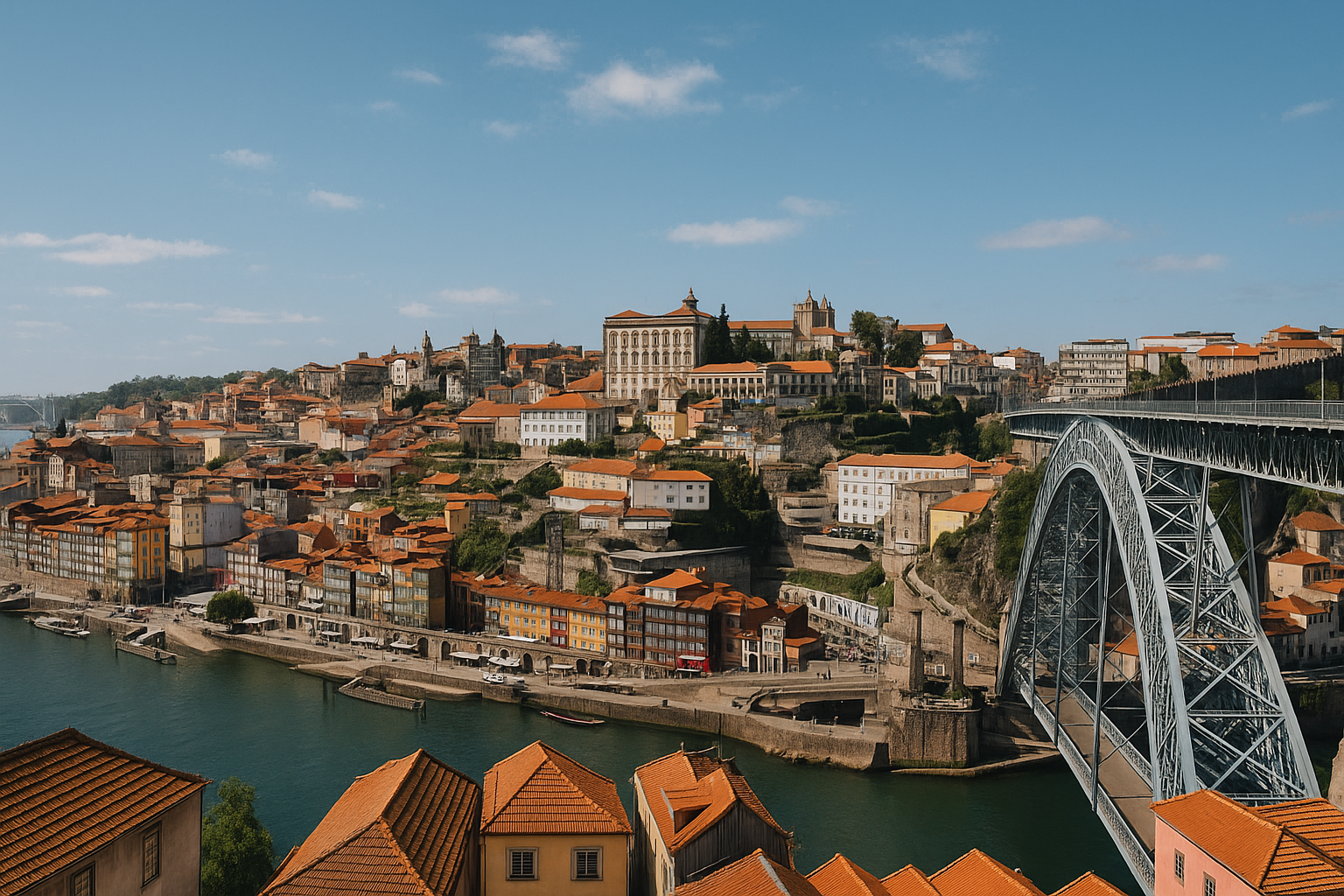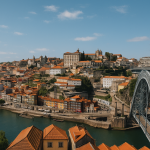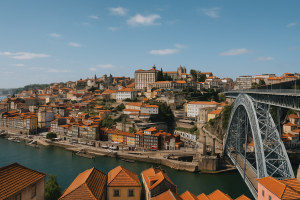
Complete Guide: How to Immigrate to Portugal in 2025 — Step-by-Step Secret Paths

Conteúdo do artigo
ToggleHow to immigrate to Portugal in 2025 — beware: the rules are shifting fast, and many aspirants fail because they don’t adapt. If you’re planning your move, this guide reveals exactly how to immigrate to Portugal in 2025, with up-to-date legal changes, visa paths, hidden costs, risks, and step-by-step instructions. Let’s plunge in.
Why Portugal? The appeal and benefits
Portugal has become a magnet for immigrants, digital nomads, retirees, and entrepreneurs. What makes it so irresistible?
-
Excellent quality of life: mild climate, beautiful coastline, safety, good healthcare and infrastructure.
-
Schengen / EU access: once you hold a Portuguese residence permit, you can travel within Schengen countries.
-
Relatively affordable cost of living: compared to other Western Europe nations, many regions in Portugal remain affordable.
-
Stable democracy & visa flexibility: compared to some other EU states, Portugal offers multiple legal pathways to stay.
Those are the attractions. But knowing how to immigrate to Portugal in 2025 means knowing which legal route fits your profile.
Legal framework & recent changes for 2025
Before you commit, you must understand the evolving legal environment.
Abolition of SEF and creation of AIMA
In October 2023, Portugal abolished the SEF (Foreigners and Borders Service) and replaced it with AIMA (Agency for Integration, Migration and Asylum). AIMA now handles migration, residency, asylum and integration functions.
This restructuring brought backlogs from the old system: tens of thousands of pending residence applications transferred.
New rule: complete application required on submission (April 2025)
Starting April 28, 2025, AIMA will only accept residence permit applications that are fully complete at submission time (no missing documents). This is a sharper rule than before, reducing flexibility.
Proposed changes to naturalization (5 → 10 years)
On June 23, 2025, the Portuguese government unveiled a proposal to tighten naturalization rules, extending the residency requirement from 5 to 10 years for most foreigners. Este projeto de lei está sob análise, mas, se aprovado, afetará significativamente os planos de médio prazo.
For Portuguese-speaking countries (CPLP), a shorter period (7 years) may remain.
Processing backlogs & administrative challenges
Because of the SEF → AIMA transition, thousands of residence permit applications became backlogged. Estimates vary between 400,000 to 460,000 pending applications.
Many applicants now wait months to over a year for appointments, biometrics or final decisions. This is a pragmatic risk you must factor into your timeline.
Overview of visa / permit routes to immigrate
To answer how to immigrate to Portugal in 2025, you must pick a route. The main pathways:
D7 Visa (Passive Income / Retirement)
The D7 visa is designed for individuals who have stable, regular passive income — pensions, rental income, dividends, etc.
You must prove you can support yourself (and dependents) with that income, and present a lease or proof of accommodation.
Under D7, you must spend a minimum time in Portugal (e.g. approximately 16 months over first 2 years) to keep the permit valid.
D2 Visa (Entrepreneur / Self Employment)
The D2 visa is for entrepreneurs and self-employed individuals who intend to set up or run a business in Portugal.
There is no fixed large capital threshold in law, but your business plan must be viable, you must show funds, and manage compliance.
After arrival, you convert to a residence permit via AIMA.
Highly Skilled / D3 / EU Blue Card route
Portugal also offers routes for highly qualified employees (sometimes under D3), or via EU Blue Card frameworks.
These require job offers, credentials, and sector alignment.
Family Reunification & Dependent Visas
If you or your family already hold legal residence, you may bring spouse, children, parents under family reunification rules — but stricter criteria are being debated.
See also: Portugal Golden Visa: How It Works — Secrets Revealed!
Golden Visa / Investment Route
Though more limited now (especially after real estate changes), the investment / Golden Visa route may still apply in select cases. But this route is becoming less dominant.
Eligibility & requirements for each route
Each immigration path has its own eligibility criteria. But here are shared essentials:
-
Proof of income / capital / business plan: reliable financial resources or business viability
-
Clean criminal record: both in home country and Portugal
-
Health insurance / health certificate
-
Proof of accommodation: lease or property in Portugal
-
Portuguese tax number (NIF)
-
Include dependents: spouse / children / parents — with their own documentation
Also, some routes demand minimum presence periods, reporting, or economic activity.
Step-by-step application process by route
Here is how to immigrate to Portugal in 2025, step by step:
-
Select your route (D7, D2, or others)
-
Apply for an entry visa at the Portuguese consulate in your home country
-
Enter Portugal within visa validity period (often 120 days)
-
Within Portugal, submit the residence permit application to AIMA, with full documentation (remember, as of April 2025 incomplete submissions will be rejected)
-
Attend biometrics / interviews / verification
-
Receive residence permit / card
-
Renewals: according to route rules (often every 1–2 years)
-
Maintain compliance with obligations (income, presence, business performance)
In many cases, you must convert from visa to residence permit within a specified window (e.g. after entering the country).
Physical presence, residency obligations & tax residency
Depending on route, you may be required to spend a minimum number of days per year in Portugal to maintain your permit.
Also, if you stay over 183 days in 12 months or develop “habitual residence,” you may become a tax resident, exposing worldwide income to Portuguese taxation.
Portugal also has a Non-Habitual Resident (NHR) tax regime, which grants tax benefits to new residents for a 10-year period under specified conditions.
Be careful: miscalculating physical presence or tax ties can lead to financial surprises.
Timeline & processing times — what to expect
Given the existing backlog and transition to AIMA:
-
Consular visa decisions often take around 60 days or more.
-
Residence permit processing (biometrics, review) can take several months due to backlog.
-
Under previous SEF, some biometric appointments were fast (weeks), but now delays of 2–3 months or more are common.
-
Because of administrative reforms and court rulings, some processes might be expedited or subject to deadlines (e.g. Supreme Administrative Court requiring 90 working days rule)
Realistically, you should plan for 6 to 12+ months from start to permit issuance (or more, depending on route and backlog).
Costs, fees & financial planning
Immigration is not free. Expect costs including:
-
Visa application fees at the consulate
-
Residence permit processing fees
-
Legal/advisory fees for attorneys, translators, document certification
-
Business setup / capital expenses (for D2 route)
-
Health insurance
-
Travel / accommodation costs for appointments
-
Cost of living while the process is underway
Budget a comfortable buffer — many applicants underestimate these fees, or face surprises late.
Risks, pitfalls & common mistakes
-
Submitting incomplete applications (after April 2025, this causes rejection)
-
Ignoring backlog delays and assuming quick approval
-
Underestimating local compliance (tax, reporting, business performance)
-
Failing presence / residency obligations
-
Legislative change risk: naturalization rules may tighten (5 → 10 years)
-
Wrong route choice: mismatch between applicant profile and permitted path
Vigilance and local legal guidance are essential.
From legal residency to permanent residency & citizenship
Once you’ve held legal residence for the required period and met obligations, you may be eligible for permanent residency.
From there, you can apply for Portuguese citizenship/naturalization — traditionally after 5 years. But under the proposed 2025 law, that may change to 10 years for most foreigners.
You will also need to show knowledge of Portuguese (language test), no criminal record, integration and possibly deeper proof of ties to Portugal.
If the new law is passed, it could greatly affect your timeline and viability.
Case studies / data & statistics
-
Portugal had over 1,000,000 foreign residents by end of 2023, up ~40% year over year.
-
The backlog inherited in AIMA included 327,000+ cases, later rising to 400,000–460,000.
-
Supreme Court rulings mandated that certain immigration cases be resolved within 90 working days, as a measure to reduce delay.
-
Proposed naturalization reform sparked debate and will apply 10-year residency for most, 7 years for Portuguese-speaking countries.
These numbers show that delays and structural reforms are central to how to immigrate to Portugal in 2025.
Future outlook & policy trends
Immigration policy in Portugal is under pressure. On one side, the government faces political demand to tighten naturalization and family reunification rules.
However, parts of previous reforms have been struck down by Constitutional Court review.
Thus, 2025 may be a pivotal year — early applicants might lock in older rules before tighter ones take effect.
It’s likely that visa routes such as D7 / D2 will remain, but naturalization and family rules may be tightened.
Final verdict — is 2025 a smart year to immigrate?
Yes — provided you act strategically and fast. The legal environment is shifting, backlogs are real, and future changes (e.g. 10-year naturalization) may hurt late movers.
Pros
-
Multiple visa routes remain open (D7, D2, etc.)
-
Portugal continues to attract immigrants, maintain relative openness
-
Early movers may lock in existing rules
Cons
-
Administrative delays and backlog
-
Legislative changes may make later paths harder
-
Risk of rejection due to stricter documentation rules
If you’re serious, begin preparations now, gather documents carefully, get legal advice, and aim to submit before new restrictions fully take effect.
FAQ (6 Q&A with keyword “how to immigrate to Portugal in 2025”)
-
What is the best route for how to immigrate to Portugal in 2025?
It depends on your profile: D7 for passive income, D2 for entrepreneurs, or skilled worker routes. Evaluate your income, business plans, and documentation capabilities. -
How long does it take to get a residence permit for how to immigrate to Portugal in 2025?
Expect anywhere from 6 to 12+ months, depending on backlog and route. -
Can I include my family when learning how to immigrate to Portugal in 2025?
Yes. Many visa types allow you to include spouse, children, and sometimes parents, if you meet financial and documentation criteria. -
Will the rules for how to immigrate to Portugal in 2025 change soon?
Quite possibly: a major proposal would shift naturalization from 5 to 10 years, and other tighter family rules are under debate. -
Do I automatically become a tax resident if I follow how to immigrate to Portugal in 2025?
Not automatically. You become tax resident if you stay over 183 days in a year or establish a habitual residence. But tax implications must be carefully monitored (NHR regime may apply). -
Is how to immigrate to Portugal in 2025 feasible given backlogs?
Yes, but it requires patience, precise documentation, and planning for delays. The backlog is a real hurdle in 2025.
Complete Guide: How to Immigrate to Portugal in 2025 — your last chance before the rules tighten!
Portugal is more alluring than ever as a destination for investors, retirees, creatives, and entrepreneurs. But 2025 is a turning point: stricter document rules, backlog overload, and looming legislative shifts that may demand 10 years for citizenship.
If you want a shot at Portuguese residency under favorable conditions, don’t wait. Start now — plan your finances, legal strategy, and submission. The window is narrowing — but for the prepared, how to immigrate to Portugal in 2025 still points the way to a European future.
Miriam Aryeh é especialista em jornalismo digital com foco em mercado de trabalho e qualidade de vida em Portugal. Apaixonada por pesquisa e escrita, dedica-se a produzir conteúdos claros, objetivos e acessíveis para quem busca oportunidades no exterior.







